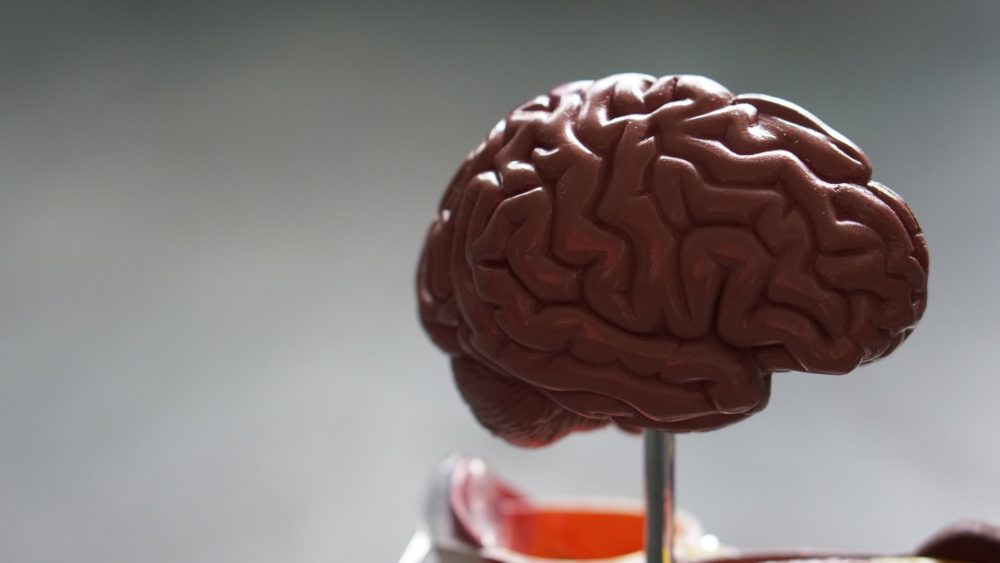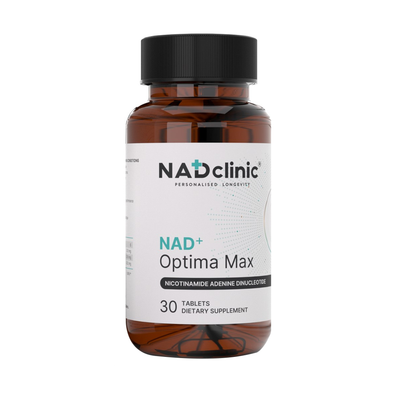September is World Alzheimer's Month where people come together from all around the world to raise awareness and to challenge the stigma that persists around dementia. This year’s campaign is highlighting the warning signs of dementia, encouraging people to seek out information, advice and support, as well as contacting the Alzheimer’s or dementia association in their country. We thought we’d take this opportunity to take a look at how NAD+ can help those suffering with brain diseases.
Alzheimer’s overview
Alzheimer’s disease is the most common cause of dementia and accounts for between 60-80% of all dementia cases. Alzheimer’s is not just simply a symptom of “getting older” and it’s important to highlight that it’s not part of the normal ageing process. Unfortunately it does get worse over time and because there is currently no cure for the disease most treatments focus on slowing the cognitive decline faced by those with the disease rather than improving one’s condition.Symptoms of Alzheimer’s
Alzheimers sufferers experience a range of symptoms including:- Memory Loss
- Vocabulary loss
- Visual/spatial challenges
- Difficulty completing tasks
- Mood Swings
Causes of Alzheimers
You’re more likely to be diagnosed with Alzheimer’s over the age of 65 where the number of individuals with the disease doubles every five years. By the age of 85, one third of all people have Alzheimer’s disease. There is no one definitive cause of Alzheimer’s, instead researchers believe that it’s caused by a number of different factors including ageing, genetics, environmental factors and lifestyle.Alzheimer’s, NAD+ and mitochondrial dysfunction
One theory about the cause of the disease focuses on neurons and protein build up. Neurons live for a very long time and repair themselves regularly, however, in people with Alzheimer’s, beta amyloid plaques (which are intended to aid in the repair of the neurons) clump up and cause the neuron to die off. As time progresses more and more of these plaques can build up and cause brain atrophy. In addition to harmful protein accumulation, Alzheimer’s is associated with dysfunctional mitochondria in brain cells. Without functional mitochondria, a cell will die. And in Alzheimer’s patients, you see increased cell death. This is because the brain’s usual DNA repair activity is impaired in Alzheimer’s disease, leading to inflammation and dysfunction. Studies have shown that dietary supplements of NAD+ led to an increase in NAD+ in the brain, reducing the production of beta amyloid, and slowing the decline of patients’ cognitive function. Many chronic conditions actually begin in cells that aren't metabolising effectively – in other words, these diseases have a mitochondrial basis, with more and more being identified with this cause since the 1970s. However, many of them have been successfully treated with NAD+ supplementation.NAD+ research
Research led by Dr. Vilhelm A. Bohr at NIH’s National Institute on Aging (NIA) set out to test whether NAD+ supplements could normalize NAD+ levels in the brains of mice and counteract deficits in thinking and memory. The research team first developed a new strain of mice that had the main features of human Alzheimer’s disease, such as the abnormal buildup of the proteins tau and amyloid-beta. NAD+ supplements were added to the mice’s drinking water and they found that after three months, the mice had less DNA damage, lower levels of neuron damage and death, increased production of new neurons, and lower brain inflammation than control mice. They also performed better than control mice on many learning and memory tests, such as a water maze and showed better muscle strength and endurance.. The research team also tested human cells from people with and without Alzheimer’s disease. As in the mouse studies, NR decreased DNA damage in the cells from people with Alzheimer’s. It will be really interesting to see how this research progresses in the future and how it may improve the outcomes of Alzheimer’s patients.
Share
Featured products
Discover our most popular items

NAD+ Levels Test Kit
£199.00
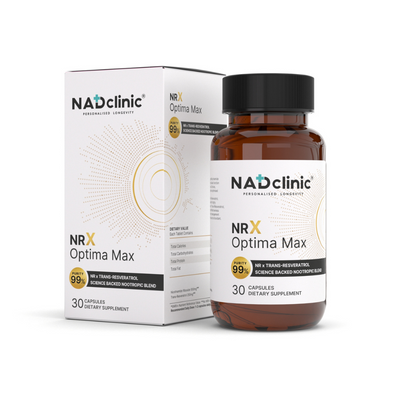
NRx Optima Max
£66.99
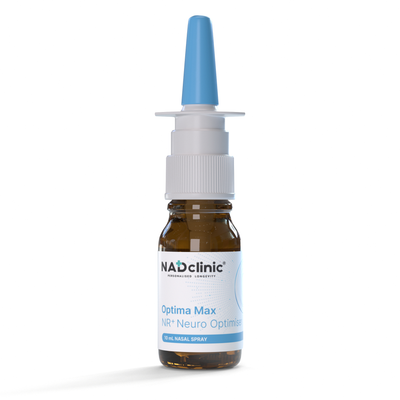
Optima Max - NR Nasal Spray
£34.99
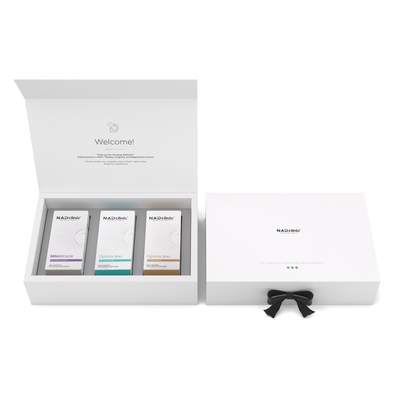
Optima Max - Gift Box Set
£264.99
Read more

International Week of Happiness at work: 3 ways that NAD+ supplements can help you improve your happiness at work
Having a happy work environment should be something every company strives to create. Not only is happiness at work great for employees, but companies can benefit too. Happy employees make better wo...
READ MORE HERE
World Heart Day: How NAD+ supplements can help with high blood pressure and heart disease
World Heart Day 2021 Cardiovascular disease (CVD) remains the world’s number one killer, resulting in 18.6 million deaths a year. There’s no one definitive cause and it’s often due to a mix of life...
READ MORE HERE